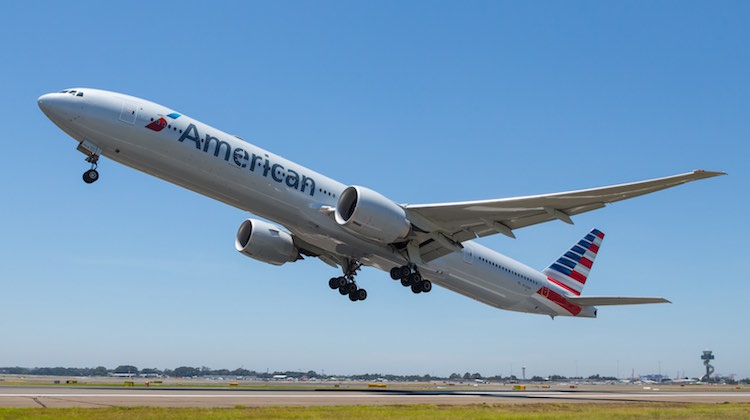
American Airlines and Qantas says Hawaiian Airlines is “virtually alone” in its objection to their joint-venture alliance on trans-Pacific routes and rejected calls for the US Department of Transportation (DOT) to place conditions on their proposed tie-up.
American and Qantas’s application for anti-trust immunity is currently before the US DOT, which said in February its review of the proposed conduct was essentially complete.
In a submission to the DOT dated February 22 and made public on March 2, Hawaiian said the granting of antitrust immunity to Qantas and American to coordinate schedules, pricing and share revenue, along with other product and service alignments, on trans-Pacific routes would give the two carriers the “ability and incentive to foreclose independent competitors from the market place”.
Further, Hawaiian said its current interline, arm’s-length arrangement with Qantas on Australian and New Zealand flights would “suffer irreparable harm” should the DOT give the alliance its tick of approval, highlighting how its interline and codesharing arrangements with Virgin Australia suffered after the Virgin-Delta Air Lines alliance was given the green light from regulators on both sides of the Pacific.
In its submission, Hawaiian called for the DOT to limit any approval to the proposed alliance to three years, to “allow for an assessment of the alleged public benefits”.
The alliance should also be “conditioned on the joint applicants’ entering codeshare agreements with independent air carriers that serve or will introduce service in the US-Australia market”, and also granted on the condition that independent airlines receive “equal access” origin and destination survey data.
“Hawaiian has found that the immunised alliances make it more difficult for smaller independent carriers to reach arm’s length, pro-competitive codeshare or interline agreements with international alliance members,” Hawaiian said.
“Often in Hawaiian’s experience, exclusivity clauses, either express or implied, constrain alliance members and prevent non-aligned carriers such as Hawaiian from reaching a codeshare or interline agreement (or limit the scope of such agreements) that otherwise would allow for the mutually-beneficial exchange of traffic at each airline’s international gateways.”
In response to the Hawaiian submission, American and Qantas said their alliance would “not alter Hawaiian’s existing agreement with Qantas in any way”.
“To the contrary, the alliance agreement specifically preserves existing arrangements with other carriers,” the pair said in its response to the DOT dated March 2.
“Hawaiian can thus continue to rely on the benefits of its interline agreement with Qantas – including the ability to sell Qantas services in Australia, and convenient and simplified connections for passengers from Qantas to Hawaiian – without worry.”
The two oneworld alliance members noted Hawaiian had made similar arguments about their alliance to the Australian Competition and Consumer Commission (ACCC), which gave the tie-up the green light in February for five years.
“Hawaiian stands virtually alone in objecting to the joint application, as no other government entity or carrier filed an answer,” the pair said.
“The lack of any meaningful opposition is hardly surprising given that the proposed alliance brings together two networks that are entirely complementary.
“Indeed, Hawaiian’s answer to the joint application is best understood as an independent complaint about the effect that increased competition from the proposed alliance might have on Hawaiian’s business between Hawaii and Australia/New Zealand, routes that are outside the scope of, and unaffected by, the proposed alliance.
“Moreover, granting the relief Hawaiian seeks would be unwise as a matter of comity since the Australian Competition and Consumer Commission heard and rejected the very arguments that Hawaiian makes again here.”
On Hawaiian’s argument that the result of similar antitrust agreements on US-Europe routes had resulted in higher fares – an argument that American and Qantas dispute – the two carriers said: “Even if the Proposed Alliance results in higher fares between the United States and Australia/New Zealand, Hawaiian – as a competitor to the proposed alliance – would benefit from the opportunity to gain passengers and grow revenue.
“Of course, despite Hawaiian’s claims to the contrary, the best evidence shows that immunised alliances result in lower quality-adjusted fares and increased capacity and traffic.”
Separately, unaligned US carrier Jetblue said in a submission to the DOT dated March 2 it supported Hawaiian’s call for a three-year limit to be placed on any granting of antitrust immunity.
“If the Department concludes that the public interest warrants a grant of ATI, there are compelling reasons for the Department to limit such a grant to a three-year period with the ability for the airlines to seek renewal of the approval,” Jetblue said.
















adammudhen
says:Amazing photo from Seth!
I wonder how much traffic goes AusUS via Hawaii, I can’t imagine much or that the proposed agreement would impact those numbers.